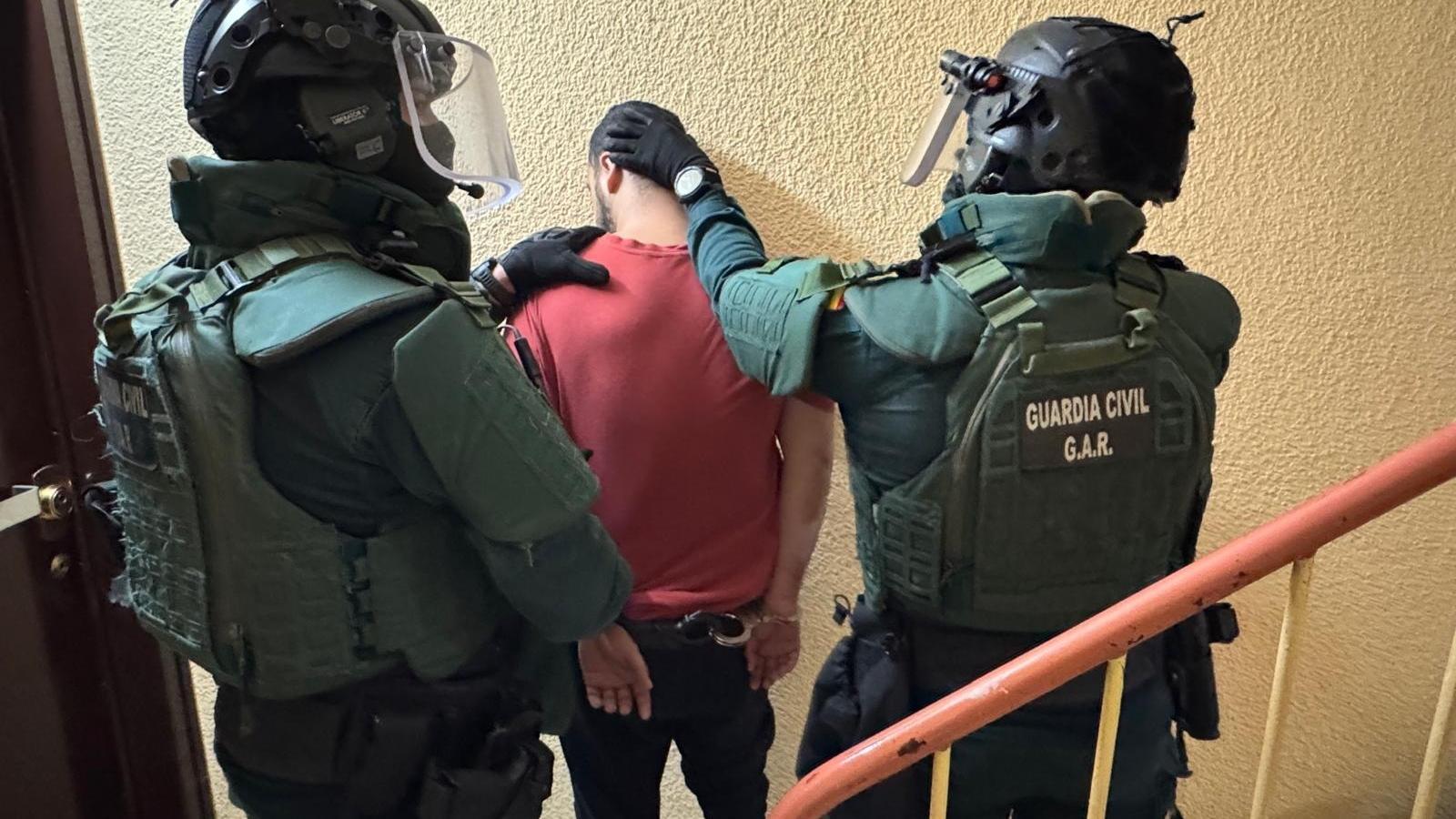A third of arrests for jihadism are made in Catalonia, and the radicalization of minors is a concern.
Terrorist groups are using social media to recruit young people, and more people have been arrested this year than in all of 2024.

BarcelonaUp to 95 people have been arrested this year in state police operations for their alleged involvement in jihadist terrorism, eight of them minors. According to data from the Ministry of the Interior, 84 have been arrested in Spain and 11 abroad. Catalonia is a hotspot for police interventions due to jihadist radicalization: of the more than fifty interventions that police have carried out throughout the state, almost a third of the arrests have been made in Catalonia.
"The fact that one in three arrests is made in Catalonia has several explanations," says Xavi Torrens, sociologist, political scientist, and professor at the University of Barcelona. Among other reasons, the expert highlights the fact that there is the largest presence of Salafism in the state; an ideological movement that he warns could be a breeding ground for Islamist radicalization. "Salafism creates a cognitive radicalization that can turn violent," he explains. It's important to keep in mind that in Catalonia there are up to three police forces (Mossos d'Esquadra, Civil Guard, and National Police) actively pursuing jihadism, which leads to more interventions and, therefore, more arrests, since "there are more vigilant eyes," he clarifies.
According to data from the Ministry of the Interior, the different police forces operating in Spain have arrested 1,357 people – 1,200 in Spain and 157 in other countries – since the Madrid attacks on March 11, 2004. This year, the 95 arrested for their connection are figures from the previous two years: ninety in 2023 and eighty-nine in 2024. These figures practically double those of previous years, due to the fact that in 2020 – the year of the pandemic – there were 38 arrests, the following year 40 and in 2022, 5
To understand this upward trend, Torrens emphasizes that it is necessary to differentiate between the cause and the drivers (or propellants) of jihadism: "The cause is the very existence of terrorist groups or organizations that propagate these ideas, such as Daesh (the self-proclaimed Islamic State) or Al-Qaeda," he points out. However, the drivers are the social factors that drive radicalization. According to Torrens, the conflict between Israel and Palestine was a driver.
"Al-Qaeda and Daesh always seek an armed conflict that is widely reported on or widely present on social media to implement their ideology. The strategy consists of telling potential followers that the West oppresses the Ummah (the Muslim community united by faith in Islam)," Torrens explains. From there, the concept of jihad emerges, which radical Islamists interpret as a holy war and see as a right to self-defense against this oppression, the expert continues. "The goal is to connect them with the ideology through conflict, and both Al Qaeda and Daesh have seen this war as a means of gaining new followers for their cause," he argues.
Minors and young people are the most exposed.
Torrens points out the risks of these messages reaching minors and young people through social media: "The radical ideas of the main Islamic terrorist groups are present on TikTok, Instagram and X, which contributes to their expansion." At the same time, he states that there are radicalized young people who have become disseminators of this content that use social platforms to attract new followers. As if they were a kind ofinfluencers of jihadism.
This situation has caused the number of minors radicalized with the postulates of jihad to grow since the COVID-19 pandemic, as the confinement left this group exposed to the online world for longer hours. This has resulted in eight minors arrested so far in 2025, including a Spanish girl arrested in the Valencian town of Cheste, and three boys in Fuensalida (Toledo).
According to Torrens, online radicalization goes beyond minors, and mainly includes the fifteen to thirty age group, which she considers most "vulnerable to radicalization." "They are the group most connected to social media and those who move most skillfully in this environment. Furthermore, it is at these ages when they can question their identity and fall into radical ideas." This has led law enforcement agencies to focus especially on prevention and detecting radicalized individuals at this early stage, as it can be a precursor to a terrorist attack.
Although the migration of jihadist content to social media helps it reach more potential followers, it also means they are less controlled by the main terrorist groups, Torrens argues. This can give rise to so-called "lone wolves." This type of radicalization contrasts with the structure typically found in more traditional recruitment methods, such as the formation of terrorist cells in religious spaces.
The operations with the most detainees
Among the operations with the most arrests this year is the one carried out by the Civil Guard, which was reported in early February, in which eleven people were arrested, seven in Pontevedra and Madrid, considered "influencers jihadists". Several of them collaborated intensively in online recruitment efforts, and some had tens of thousands of followers. In the guise of videos and posts on physical training, such as calisthenics and self-defense, they included indoctrination instructions based on the National Police and Mossos d'Esquadra ideology, in collaboration with Italian agents, and led to the dismantling of a radical Pakistani organization that promoted violent actions, with ten arrests in Barcelona and one in Piacenza. doctrine. Also, and in collaboration with other police forces, Spanish agents have participated in operations against jihadist terrorism in Ecuador, Portugal, the United Kingdom, France and Belgium.
